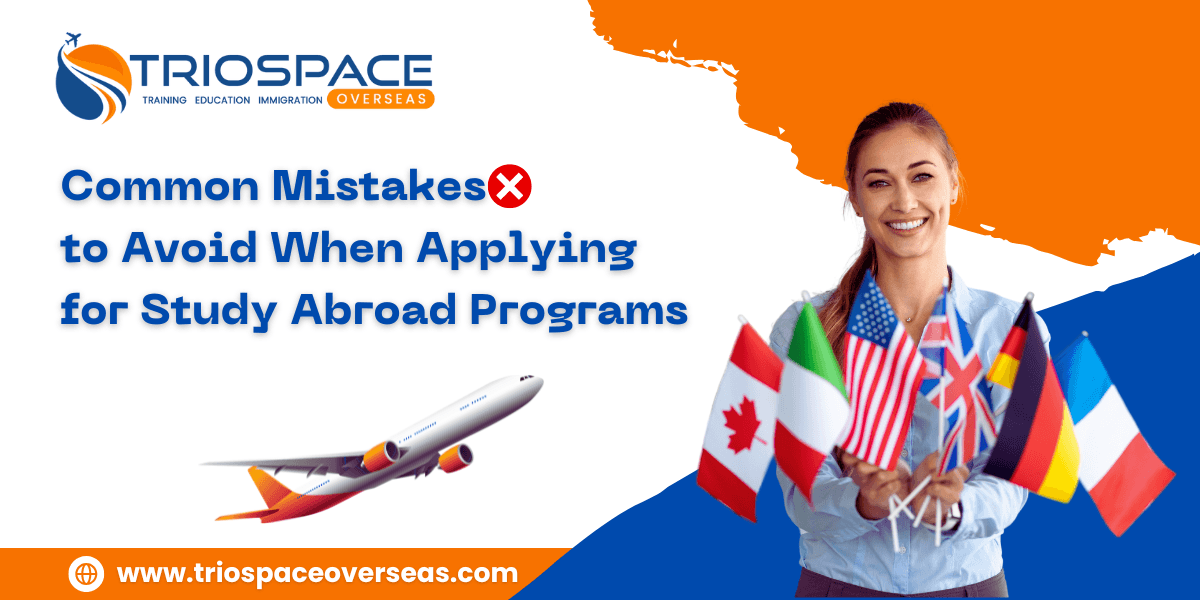
Step-by-Step Guide to Canadian Study Permit Visa:
What is a Study Permit?
Foreign nationals are permitted to enroll in classes at designated learning institutions (DLIs) in Canada with the official document known as a study permit, which is provided by the Canadian government. It is a crucial requirement for international students planning to pursue academic programs in the country.
Eligibility:
Applicants must have an acceptance letter from a DLI that is recognised in Canada in order to be eligible for a study permit.
They should also prove that they have enough funds to cover tuition fees, living expenses, and return transportation.
1. What are Designated Learning Institutions (DLIs)?
Types of DLIs:
DLIs include universities, colleges, and other educational institutions that offer designated programs to international students. These programs can range from academic and professional to vocational and technical.
1. Importance of Study Permit: To apply for a Canadian study permit, international students must have an acceptance letter from a DLI. Without acceptance from a DLI, a student cannot apply for a study permit.
2. Verification of Eligibility: Immigration, Refugees, and Citizenship Canada (IRCC) maintains a list of DLIs on its official website. Prospective students should verify whether their chosen institution is a DLI and eligible to host international students.
3. Post-Graduation Work Permit (PGWP): DLIs play a role in the eligibility for the Post-Graduation Work Permit (PGWP). To qualify for a PGWP, students must have completed a program at a designated institution.
4. Language Programs: Some language programs at private educational institutions may not require designation, but those that lead to a degree or diploma often do. Students should check specific language program requirements with the institution.
5. Changes in Designation: DLIs are subject to change, and institutions may lose their designated status. Students are advised to regularly check the IRCC website for updates to ensure their chosen institution remains a DLI.
6. Choosing a DLI: When selecting an institution, students should consider factors such as program offerings, location, and reputation. It’s essential to choose an institution that aligns with your academic and career goals.
2. Application Forms and Documentation:
The application forms and documentation required for a Canadian study permit are essential components of the application process. Here’s an overview:
1. Application Forms: The primary application form for a Canadian study permit is the “Application for a Study Permit Made Outside of Canada” (form IMM 1294). This form is available on the official website of Immigration, Refugees, and Citizenship Canada (IRCC).
2. Acceptance Letter from a Designated Learning Institution (DLI): An acceptance letter from a Canadian DLI is a fundamental requirement. This letter should include details such as the program of study, the duration of the program, and any conditions or prerequisites.
3. Valid Passport: A valid passport is necessary for the duration of your intended stay in Canada. Ensure that your passport is valid for the entire period of your study program.
4. Proof of Financial Support: Show that you have the resources necessary to pay for your living expenses, tuition, and round-trip transportation. This could include bank statements, proof of a Canadian bank account, or a letter of financial support.
5. Language Proficiency Test Results: Depending on the program and educational institutions, you may need to provide language proficiency test results. Commonly accepted tests include IELTS, TOEFL, or the Canadian English Language Proficiency Index Program (CELPIP).
6. Proof of Tuition Payment: Some visa offices may require evidence of tuition payment or a letter from the institution confirming your enrollment and the cost of tuition.
7. Family Information Form (IMM 5645): This form gathers information about your family members. Complete one form for each family member accompanying you to Canada.
8. Making Use of IMM 5476, the Representative Form: If you have appointed a representative, such as an immigration consultant, to assist with your application, this form is required.
3. Language Proficiency Requirements:
An essential component of applying for a study permit in Canada is language competency.
International students applying for a study permit in Canada are typically required to demonstrate proficiency in either English or French, depending on the language of instruction of their chosen program.
1. Accepted Language Tests:
Commonly accepted language proficiency tests include:
The International English Language Testing System (IELTS) academic version.
The internet-based version of the Test of English as a Foreign Language, or TOEFL iBT.
CELPIP (Canadian English Language Proficiency Index Program): General or Academic.
2. Language Proficiency for Bilingual Programs: If the program is offered in both English and French, students may need to demonstrate proficiency in both languages. Check with the institution for specific language requirements.
3. Exemptions from Language Tests: In some cases, applicants may be exempt from providing language test results. Exemptions may apply if:
The primary language of instruction at the previous educational institutions was English or French.
4. Language Proficiency for French-Speaking Provinces: For study programs in Quebec or other French-speaking provinces, proficiency in French may be a key requirement. The Test d’évaluation de français pour le Canada (TEF Canada) is a commonly accepted French language proficiency test.
5. Submitting Test Scores: Include the official test results along with the study permit application. Ensure that the test scores are within the validity period specified by the institution and immigration authorities.
6. Language Proficiency for Post-Graduation Work Permit (PGWP): Adequate language proficiency is important for eligibility for the Post-Graduation Work Permit (PGWP) after completing studies in Canada.
4. Biometrics in Canadian Study Permit Application:
What are Biometrics: Biometrics refer to unique physical characteristics, such as fingerprints and a photograph, used for identification purposes. Canada requires certain applicants, including study permit applicants, to provide biometric information.
Who Needs to Provide Biometrics: Most applicants aged 14 to 79 must provide biometrics as part of their application. Some exemptions may apply based on nationality, age, or if the applicant has provided biometrics within the last ten years.
Biometric Collection Process: Applicants receive a Biometric Instruction Letter (BIL) after submitting their application. The BIL provides details on where and when to provide biometrics. Biometrics are usually collected at Visa Application Centers (VACs) or Application Support Centers (ASCs).
Biometric Fee: There is a separate fee for providing biometrics. Ensure the fee is paid before attending the biometric appointment. For the most recent information on fees, visit the official website of the IRCC.
Exemptions and Special Cases: Some individuals, such as diplomats, representatives of certain international organizations, and children under 14 or adults under 79, may be exempt from providing biometrics. Check the IRCC website for specific exemptions.
5. Medical Examination in Canadian Study Permit Application:
1. When a Medical Examination is Required: A medical examination is generally required if the applicant has lived or stayed for six or more consecutive months in one or more of the countries or territories listed on the IRCC website during the one year immediately preceding the date of their planned arrival in Canada.
2. Designated Panel Physicians: A designated panel physician will perform a medical examination on applicants. A list of panel physicians is available on the IRCC website. The examination is to ensure the applicant does not pose a health risk to the Canadian public.
3. Timing of the Medical Examination: Applicants should schedule the medical examination as soon as possible after receiving the instructions from the visa office. However, it’s advisable to wait until instructed by the visa office to avoid unnecessary costs in case the application is not approved.
4. Medical Examination Report: The panel physician will provide the applicant with a Medical Report Form. This form, along with any supporting documents, must be submitted as part of the study permit application.
5. Validity of Medical Examinations: Medical examinations are generally valid for 12 months. If the examination expires before the study permit is issued, the applicant may need to undergo a new medical examination.
6. Financial Proof
Financial proof is a crucial aspect of the Canadian study permit application process. It involves demonstrating to the immigration authorities that you have the financial means to cover your tuition, living expenses, and other costs while studying in Canada. Here’s an overview:
1. Tuition Fees: Provide evidence of payment or acceptance of your tuition fees from the designated learning institution (DLI). This confirms your commitment to the program.
2. Living Expenses: Show proof that you have enough funds to cover living expenses, including accommodation, food, transportation, and other personal expenses.Bank statements, sponsorship letters, and other financial records can be used to prove this.
3. Proof of Funds: The Canadian government sets minimum financial requirements based on the number of family members accompanying you to Canada. You need to provide proof of funds to cover these requirements. This could include bank statements, fixed deposit certificates, or other financial documents.
4. Source of Funds: Indicate the source of your funds, whether they come from your savings, a scholarship, a sponsor, or a combination of these. Include supporting documentation, such as employment letters, income statements, or sponsorship letters.
5. Currency Conversion: If your financial documents are in a currency other than Canadian dollars, provide a currency conversion using a reliable exchange rate. Use the rate provided by a financial institution or a reputable currency converter.
7. Conditions and Restrictions:
When you receive a Canadian study permit, it may come with certain conditions and restrictions. Understanding these conditions is crucial for compliance with Canadian immigration regulations. Here’s an overview:
1. Program of Study: The study permit is usually granted for a specific program and its duration. You are expected to complete the program within the indicated timeframe. If you wish to change your program, you may need to apply for an amendment to your study permit.
2. Full-Time Enrollment: Most study permits require that you enroll as a full-time student. Falling below the full-time status without proper authorization could result in the violation of your permit conditions.
4. Academic Standing: Maintain satisfactory academic standing. Failing to meet the academic requirements or dropping out could affect your status in Canada. If you face academic challenges, it’s advisable to seek guidance from your institution’s international student office.
5. Work Authorization: If your study permit allows you to work on or off campus, ensure that you adhere to the specified working hours and conditions. Violating these conditions may result in the cancellation of your study permit.
6. Expiry Date: Your study permit has an expiry date. Plan to either leave Canada before this date or apply for an extension well in advance if you wish to continue your studies.
7. Compliance with Canadian Laws: Adhere to Canadian laws and regulations. Any involvement in criminal activities may result in serious consequences, including deportation.
8. Working While Studying
Working while studying is a valuable option for many international students in Canada. However, there are specific rules and regulations regarding employment that you must be aware of to maintain compliance with your study permit. Here’s an overview:
1. On-Campus Work: Most international students with a valid study permit are eligible to work on campus without a separate work permit. However, there are restrictions on the number of hours you can work during the academic session.
2. Off-Campus Work: International students with a valid study permit may be eligible to work off-campus, but you must apply for a separate work permit. This work permit allows you to work for any eligible employer in Canada.
3. Work Hours During Academic Sessions: For on-campus and off-campus work, you are generally allowed to work up to 20 hours per week during regular academic sessions. However, you can work full-time during scheduled breaks, such as winter or summer holidays.
9. Renewal and Extensions:
Renewing or extending your study permit in Canada is essential if you plan to continue your studies beyond the original permit’s expiry date. Here’s an overview of the renewal and extension process:
1. Timely Application: Begin the renewal or extension process well before your current study permit expires. It’s advisable to apply at least 30 to 90 days before the expiry date.
2. Active Enrollment: To be eligible for a study permit renewal or extension, you must remain enrolled as a full-time student at a designated learning institution (DLI).
3. Applying Online: The renewal or extension application is typically submitted online through the Immigration, Refugees, and Citizenship Canada (IRCC) website. Create or use your existing online account to complete and submit the application.
10. Post-Graduation Work Permit (PGWP):
The Post-Graduation Work Permit (PGWP) is a valuable option for international students who have completed a program of study at a designated learning institution (DLI) in Canada. The PGWP allows eligible graduates to work in Canada for a certain duration after completing their studies. Here’s an overview:
1. Eligibility Criteria:
To qualify for a PGWP, you have to fulfill the following requirements:
have finished a DLI full-time study program.
Have a program duration of at least eight months.
have remained enrolled full-time in the course of the program.
Within 180 days of receiving written confirmation that the program has been completed, apply for the PGWP
2. Program Length and PGWP Duration: The length of the PGWP is determined based on the length of the program completed. Graduates from programs with a duration of:
Eight months to less than two years may be eligible for a PGWP valid for the length of the program.
Two years or more may be eligible for a PGWP valid for three years.
3. Applying for a PGWP: The PGWP application is typically submitted online through the Immigration, Refugees, and Citizenship Canada (IRCC) website. Ensure that you have all required documents, including the letter of completion from your DLI.
4. Valid Study Permit: To be eligible for a PGWP, you must have a valid study permit at the time of applying for the work permit. If your study permit has expired, you may need to apply for its renewal before applying for the PGWP.
5. Temporary Resident Status: Ensure that you maintain temporary resident status during the PGWP application process. This may involve extending your study permit or applying for visitor status if your study permit has expired.
7. Work Authorization: Once approved, the PGWP provides work authorization, allowing graduates to work full-time, part-time, or be self-employed, as per the conditions specified.
8. Post-Graduation Employment in Quebec: – Graduates who studied in Quebec and meet certain criteria may be eligible for the Programme de l’expérience québécoise (PEQ) for work experience in Quebec.
Conclusion:
In conclusion, embarking on the journey to study or visit Canada involves a meticulous process of visa application. This step-by-step guide aims to simplify the complexities, offering a roadmap to navigate the intricate procedures seamlessly.
From the initial preparation of necessary documents to the crucial biometrics appointment, each stage plays a pivotal role in ensuring a successful visa application. Adhering to deadlines, presenting authentic information, and staying informed about the latest updates are essential components of a smooth application process.
FAQ For Canadian Visa Application
1: Is an interview required for a Canadian study permit?
While not always mandatory, some applicants may be asked to attend an interview as part of the application process. It’s advisable to prepare for potential questions about your study plans and intentions.
2: Can I work while studying in Canada?
Yes, as an international student, you are generally allowed to work part-time during your studies, up to 20 hours per week. This provides an opportunity to gain valuable experience and support your finances.
3: What if my visa application is rejected?
If your application is refused, you’ll receive a notification with instructions on how to appeal. It’s crucial to carefully review the reasons for rejection and address any deficiencies before reapplying.



















